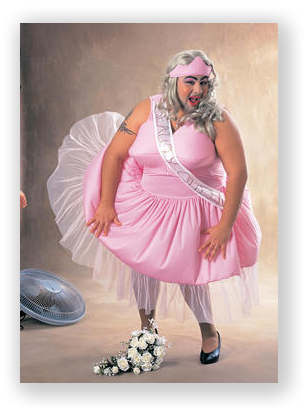We post news and comment on federal criminal justice issues, focused primarily on trial and post-conviction matters, legislative initiatives, and sentencing issues.

GOVERNMENT DENIED A MULLIGAN IN § 2255 ARGUMENT
A crusty old judge I once knew liked to warn attorneys they had to “dance with the girl who brung” them. That is, if they made a claim in their opening statement, they had to stick with that claim, and not try to slip in a new theory when the old one started looking weak.
 The 4th Circuit told the government the same thing last week. Antwan Winbush filed a post-conviction motion under 28 U.S.C. § 2255 that argued his attorney had been ineffective at his sentencing. Specifically, the court attributed two prior drug convictions to Antwan, making him a “career offender” under the Sentencing Guidelines, and exposing him to a dramatically potential higher sentencing range. Antwan arued his lawyer should have noticed that one of the two priors was inapplicable.
The 4th Circuit told the government the same thing last week. Antwan Winbush filed a post-conviction motion under 28 U.S.C. § 2255 that argued his attorney had been ineffective at his sentencing. Specifically, the court attributed two prior drug convictions to Antwan, making him a “career offender” under the Sentencing Guidelines, and exposing him to a dramatically potential higher sentencing range. Antwan arued his lawyer should have noticed that one of the two priors was inapplicable.
The government admitted Antwan was right about one of the drug prior convictions not counting for “career offender” (because the conduct it addressed was drug possession, not drug trafficking). That did not matter, the government said, because Antwan was not prejudiced. It seems Antwan also had a prior conviction for an Ohio robbery, and that prior offense would have counted to make him a Guidelines “career offender” even without the defective prior drug conviction.
Antwan protested that neither the U.S. Attorney nor the court identified the robbery conviction as a “career offender” qualifier at sentencing. Instead, both relied only on the two prior drug convictions.
The district court said it did not matter which convictions the government brought to the dance back at sentencing, because it was free to watusi with the heretofore-unidentified robbery conviction now. But last week, the 4th Circuit disagreed.
The Circuit, noting that Antwan’s presentence report “did not designate his robbery conviction as a predicate conviction for the career offender designation,” ruled that as a result, Antwan “was given no notice at sentencing that his robbery conviction could be utilized as a predicate conviction for a career offender enhancement.”
 The government “has already been given one full and fair opportunity to offer whatever support for the career offender enhancement it could assemble,” the Court held. Because the government did not identify the robbery as a conviction on which it intended to rely to support a Guidelines “career offender” enhancement at sentencing, it cannot decide to do so later when it finds it convenient, because one of the convictions it did rely on to support the career offender designation ends up not counting.
The government “has already been given one full and fair opportunity to offer whatever support for the career offender enhancement it could assemble,” the Court held. Because the government did not identify the robbery as a conviction on which it intended to rely to support a Guidelines “career offender” enhancement at sentencing, it cannot decide to do so later when it finds it convenient, because one of the convictions it did rely on to support the career offender designation ends up not counting.
“To hold otherwise,” the 4th ruled, “would be to allow the government to change its position regarding which convictions support the enhancement now that one of its original choices cannot do the job. Worse yet, allowing the government to change positions for the first time on collateral review would unfairly deprive the defendant of an adequate opportunity to respond to predicate offense designations, especially given the fact that a defendant has the burden of proof at the 2255 stage but no right to counsel.”
You dance with the girl who brung you.
United States v. Winbush, 2019 U.S. App. LEXIS 11853 (4th Cir. Apr. 23, 2019)
– Thomas L. Root

